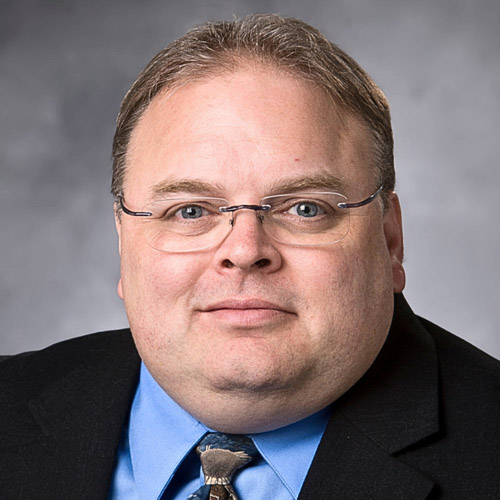AAFP: Marijuana and Cannabinoids: An Overview for Forensic Mental Health Professionals
Presented by: Shawn K. Acheson, PhD
 This on-demand professional training program on Marijuana and Cannabinoids: An Overview for Forensic Mental Health Professionals is presented by Shawn K. Acheson, PhD in partnership with the American Academy of Forensic Psychology (AAFP).
This on-demand professional training program on Marijuana and Cannabinoids: An Overview for Forensic Mental Health Professionals is presented by Shawn K. Acheson, PhD in partnership with the American Academy of Forensic Psychology (AAFP).
This program provides a broad overview of marijuana and related natural and synthetic cannabinoids. Topics to be covered include the history of their use and the evolution of THC content and synthetics; the basic pharmacology of how cannabinoids affect the brain and how they are processed by the body; and the cognitive, behavioral, and psychomimetic effects of cannabinoids. Participants also learn how this information relates to specific forensic matters such as criminal competence, mental state at the time of the offense, and mitigation at sentencing.
This program is intended for fellow psychologists of all levels of experience, particularly those working in criminal forensic contexts. Psychologists in private practice, as well as those working in state hospitals, state or federal prisons, may benefit from the material presented. However, various other professionals may also gain valuable information including psychiatrists, social workers, and counselors with experience or interest in forensic matters.
Upon completion of this training, participants will be able to:
Key topics covered in this training include:
Brief History of Cannabis and Cannabinoids
Crime and Use statistics
Changes in potency and the designer craze
The evolution of delta-9 alternatives (e.g., CBD, Delat-8, Delta-10)
Basic Pharmacology of Cannabinoids (natural and synthetic)
Structure and function
Drug detection and clinical laboratory findings
Acute Intoxication, Chronic Use, & Withdrawal
Cognitive, Behavioral, and Psychotomimetic effects of cannabinoids
Forensic Applications
Criminal Competencies
Mental State
Mitigation
Neurodevelopmental Effects (as time permits)
Prenatal
Adolescent
Geriatric

We are proud to partner with the American Academy of Forensic Psychology (AAFP) for this training. AAFP is a non-profit organization of board-certified forensic psychologists whose mission is to contribute to the development and maintenance of forensic psychology as a specialized field of study, research, and practice. The Academy does this by providing high-quality continuing education workshops, providing a forum for the exchange of scientific information among its members, and conferring awards upon outstanding students and practitioners in the field of forensic psychology.
Palo Alto University, Continuing & Professional Studies (CONCEPT) is approved by, recognized by, or maintains sponsorship provider status with the following boards and agencies. We maintain responsibility for all content in our CE/CPD programs. For more information, visit here.
American Psychological Association (APA): Approved sponsor of continuing education for psychologists.
Association of Social Work Boards (ASWB): Approved continuing education provider (ACE program, Provider #1480), 11/22/2023–11/22/2026.
Canadian Psychological Association (CPA): Approved to sponsor continuing education for psychologists.
National Board for Certified Counselors (NBCC): Approved Continuing Education Provider (ACEP No. 7190).
Palo Alto University, Continuing and Professional Studies (CONCEPT) is approved by the American Psychological Association to sponsor continuing education for psychologists. Palo Alto University, Continuing and Professional Studies (CONCEPT) maintains responsibility for this program and its content. Palo Alto University, Continuing and Professional Studies (CONCEPT), is approved by the Canadian Psychological Association to offer continuing education for psychologists. Palo Alto University, Continuing and Professional Studies (CONCEPT), SW CPE is recognized by the New York State Education Department’s State Board for Social Work as an approved provider of continuing education for licensed social workers #SW-0356 and the New York State Education Department’s State Board for Mental Health Practitioners as an approved provider of continuing education for licensed mental health counselors. #MHC-0073. Palo Alto University, Continuing and Professional Studies (CONCEPT) has been approved by NBCC as an Approved Continuing Education Provider, ACEP No. 6811. Programs that do not qualify for NBCC credit are clearly identified. CONCEPT Professional Training, #1480, is approved to offer social work continuing education by the Association of Social Work Boards (ASWB) Approved Continuing Education (ACE) program. Organizations, not individual courses, are approved as ACE providers. State and provincial regulatory boards have the final authority to determine whether an individual course may be accepted for continuing education credit. CONCEPT Professional Training maintains responsibility for this course. ACE provider approval period: 11/22/23-11/22/26. Social workers completing this course receive (clinical or social work ethics) continuing education credits.